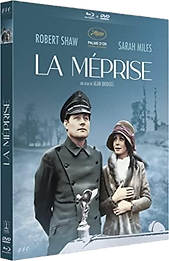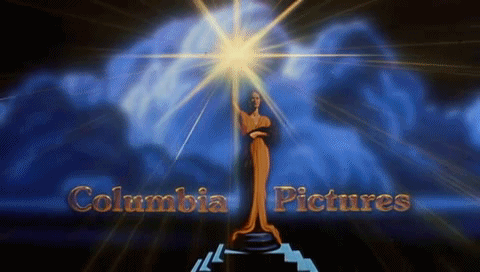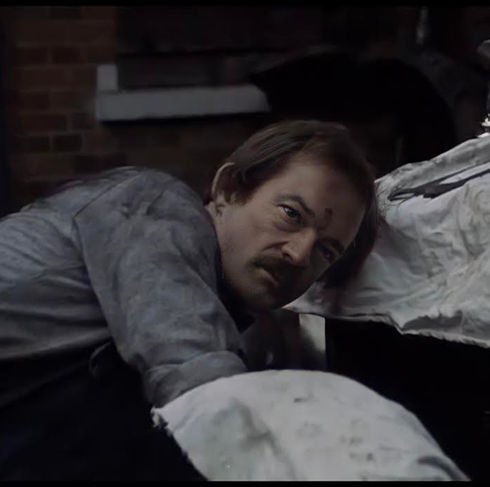

.com

Estd. 2020
Approved by the Shaw Family







"You ladies and gentlemen make me ill!"

"He just couldn't bear losing. I've never known anyone quite like that"


trailer
Robert Shaw as Steven Ledbetter

A young British woman suffering from depression over the loss of her husband develops an unusual relationship with her chauffeur.
Directed by Alan Bridges
Screenplay by Wolf Mankowitz from the novel by L.P. Hartley
Produced by Ben Arbeid and Terence Baker
Music by Marc Wilkinson
Cinematography by Michael Reed
Edited by Peter Weatherley
Also starring Sarah Miles, Peter Egan, Elizabeth Sellars, Caroline Mortimer and Ian Hogg
Released by Columbia Pictures
Release Date: July 26th 1973
Running Time: 108 minutes
Location(s): Bath, Wiltshire and Bray Film Studios Berkshire
Filming commenced: November 27th 1972
Grand Prix winner at Cannes Film Festival 1973










gallery





ledbetter's garage
Talking Pictures TV Trailer
Official Movie Soundtrack
Bloody Foreigners!
Exclusive promo trailer made for UK TV station Talking Pictures.
A selection of tracks from Marc Wilkinson's haunting score.
An exclusive clip from the movie showing Ledbetter starting to unravel mentally.




![now showing GIF_thumb[1].gif](https://static.wixstatic.com/media/51f4b8_c475c3f62240416ea489b9651df68e26~mv2.gif/v1/fill/w_426,h_99,al_c,usm_0.66_1.00_0.01,pstr/now%20showing%20GIF_thumb%5B1%5D_gif.gif)


Press Play



DIRECTOR
Alan Bridges
(1927 - 2013)
"Shaw and Miles are practically without fault."



Sarah
Miles
(1941 - )

Peter
Egan
(1946 - )

Ian
Hogg
(1937 - )

Elizabeth
Sellars
(1921 - 2019)

Caroline
Mortimer
(1942 - 2020)


For me, this is his best work. The slow burn from the beginning to the mental unravelling at the end is a masterclass in character acting. His chemistry with Sarah Miles is undeniable and she turns in an award winning performance as the fragile Lady Franklin. Solid direction and a great script keeps the tension burning throughout and Marc Wilkinson's jarring score is the cherry on the cake.
This is the type of classy and intellectual stuff that Bob loved and his performance is sublime. As always with Shaw there is an undercurrent of danger about him and this is the perfect vehicle for him. It's beautifully directed with some stunning locations and deservedly won the Grand Prix award at the Cannes film festival. Yet again Robert was not nominated which simply beggars belief. If you are a genuine Shaw fan, this is must watch.

Lobby Card Gallery

It really is a brilliant film, with an authentic 70s strangeness, manifesting itself partly in an eerily deliberate slowness of pacing, to which it takes time to grow accustomed, but which is part of the stupendous atmosphere it accumulates, and partly in its robustly English sense of place. Sarah Miles is superb as Lady Franklin, the damaged young aristocrat who has had a nervous breakdown as a result of being widowed.
For some reason, she takes a shine to her new chauffeur, Ledbetter, played by Robert Shaw, and her depression lifts - and the acting technique with which Miles demonstrates the thawing of her mood, and her change of personality, is a marvel.
As for Robert Shaw, he is an icon of 70s Hollywood from The Sting and Jaws, but this is his finest hour. He is the bluff, but amiable driver with a weird habit of addressing his passenger as "m'lady", like Parker with Lady Penelope in Thunderbirds.
He sees how his employer is yearning for compassion and love, and instinctively senses that he can gain friendship and intimacy with her through evasions, fantasies and lies of his own invention. Ledbetter poignantly becomes irreversibly entranced with her at the very moment when she gains the emotional strength to do without his ministrations; he falls in love as she outgrows him.
Lady Franklin finds herself being romanced by Captain Hugh Cantrip, an ambitious young Liberal politician, nicely played by Peter Egan, who was an old associate of her late husband's and, crucially, Ledbetter's commanding officer during the great war.
When poor Ledbetter - very much other ranks - finally plucks up the courage to confess his love to her it is exquisitely painful and embarrassing. And just as Ledbetter had been able to give Lady Franklin the healing touch and emotional nourishment that none of her social equals could provide, he knows something that has eluded her intimate circle: that Captain Cantrip is a cad who is using her and her late husband's network of political contacts to advance his own parliamentary ambitions.
This slow-burning tale is marked by intriguing sequences: long, uninterrupted car rides as Miles gazes out of the window like a wounded animal or a sick child being genially coaxed back into health by Ledbetter. There are tremendously achieved set pieces, such as the excruciating luncheon Lady Franklin hosts for local bigwigs to launch Cantrip's political career, or the boys' boxing tournament for which the besotted Ledbetter has asked Lady Franklin to present the winners' cup - and at which he finds himself horribly upstaged by his old CO.
It is a gem of a film, a tragicomedy of obsolete English manners and a poignant story of failure in love. At Cannes a few years ago, journalists were given a sort of souvenir bag for the festival's 60th anniversary, with the names of the festival's great film-makers on it: and there, along with Scorsese, Fellini and all the rest was Alan Bridges's name. Should we leave it to Cannes to remind us what a great talent Bridges is? How about a retrospective for Alan Bridges at the BFI Southbank?


















































































